United States of America v. John Blondek, Vernon R. Tull, Donald Castle, and Darrell W.T. Lowry (1990) - Importance and Analysis
VerifiedAdded on 2023/06/05
|6
|402
|394
AI Summary
The case of United States of America v. John Blondek, Vernon R. Tull, Donald Castle, and Darrell W.T. Lowry (1990) is important in controlling dishonest foreign officials who accept bribes for indecent business benefits. The wider strategy of the DOJ is to target the demand region of the foreign bribery instead of concentrating on the individuals paying bribes. The decision of the Congress to pass by such prosecutions was supported by the facts of this case, because foreign countries are required to prosecute their own officials for taking bribes. The case also includes an analysis of the legislative history of the FCPA and the decision of the Supreme Court in Gebardi found in the Mann Act as in accord with the legislative policy to leave a distinct group of individuals without any punishment, even if they are found involved in the violation of the applicable law.
Contribute Materials
Your contribution can guide someone’s learning journey. Share your
documents today.
1 out of 6
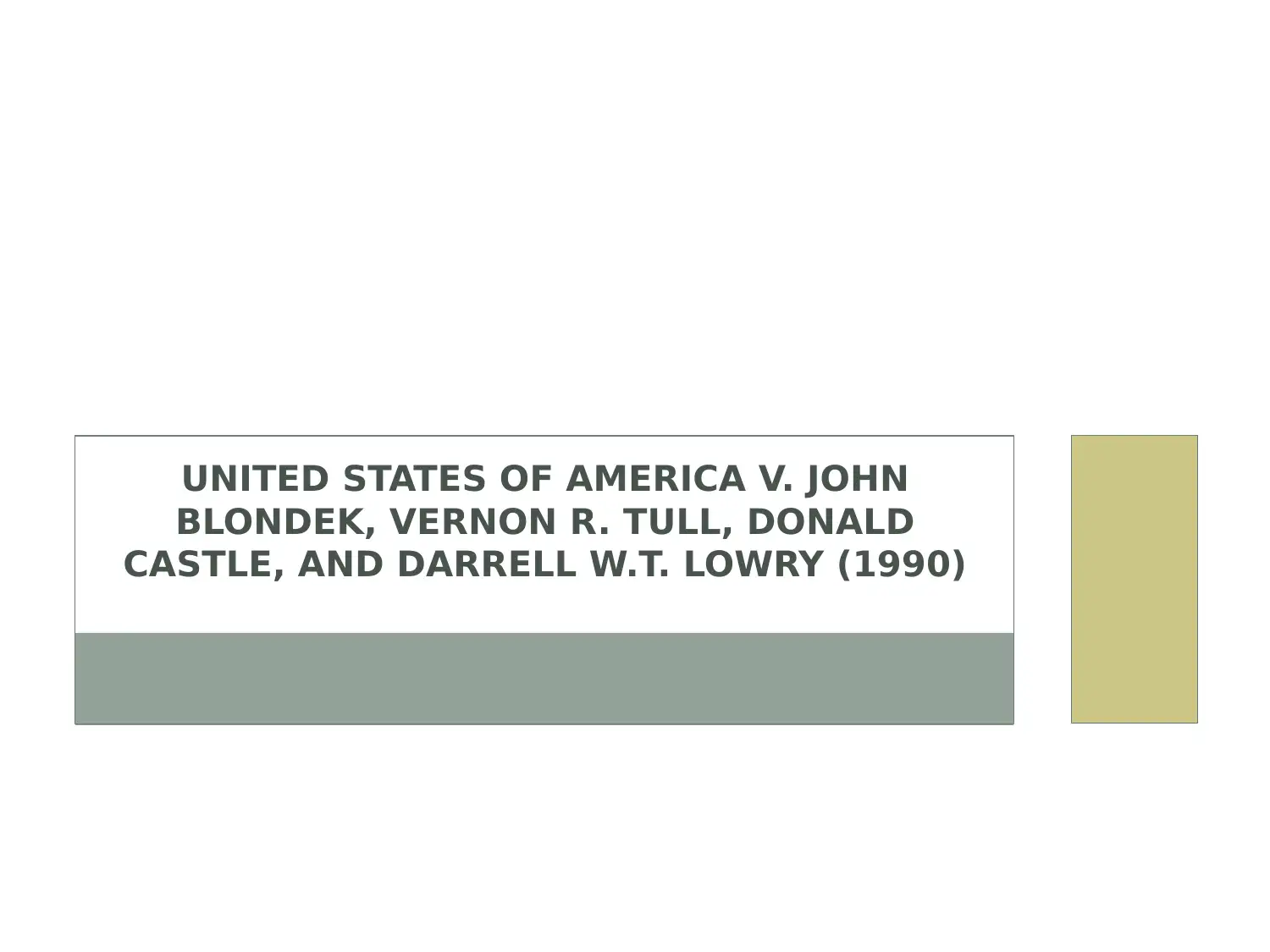
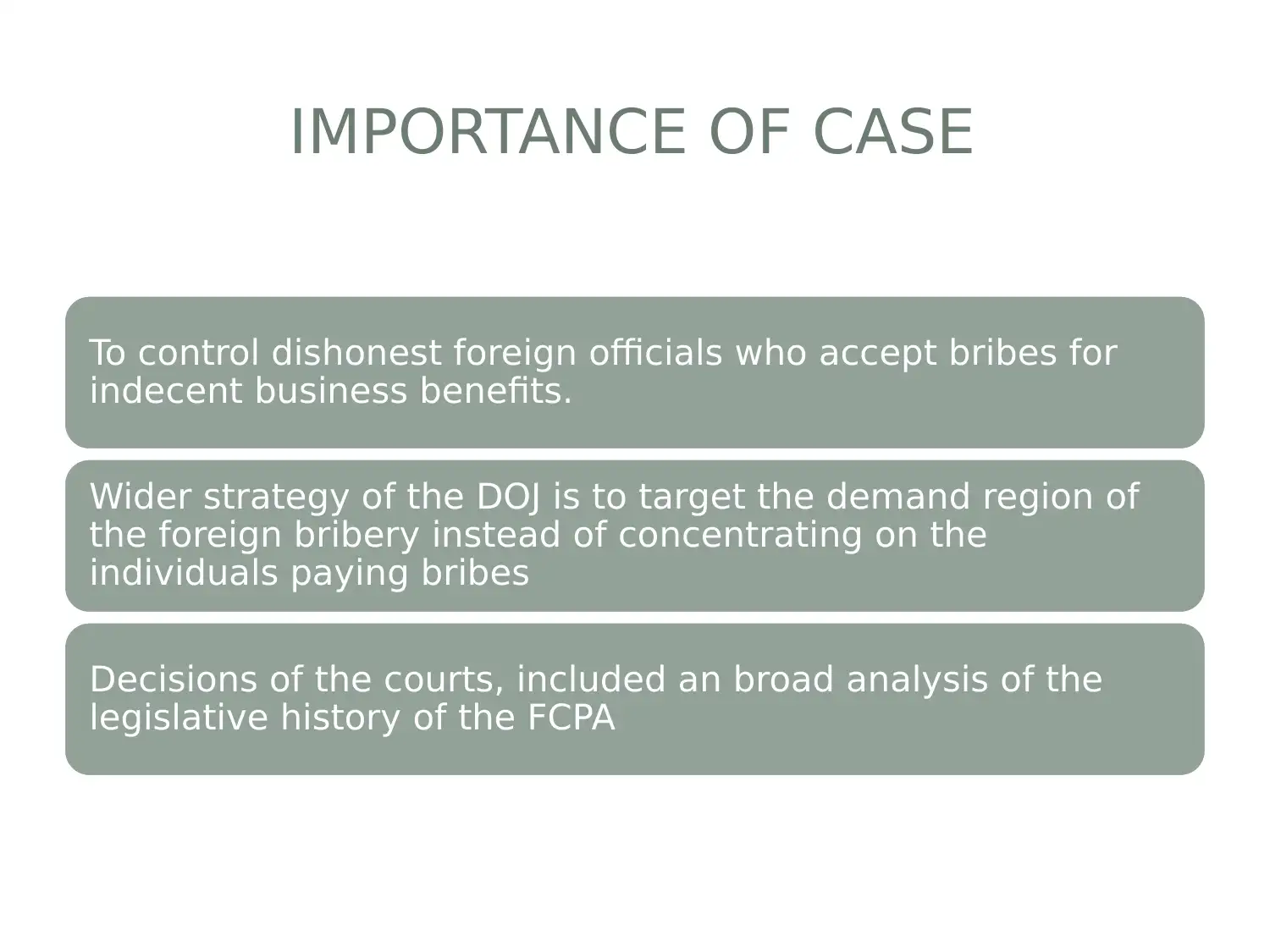
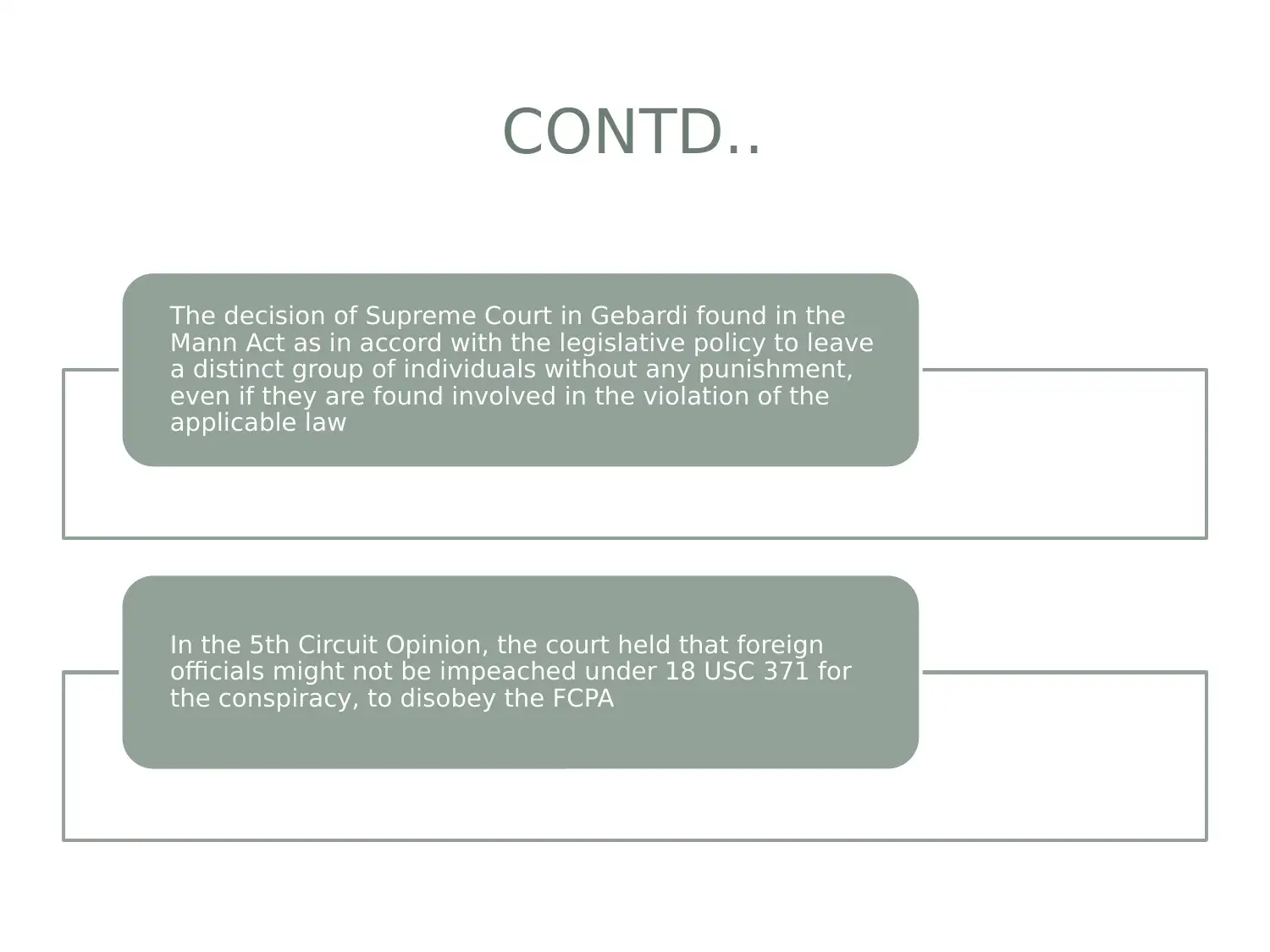
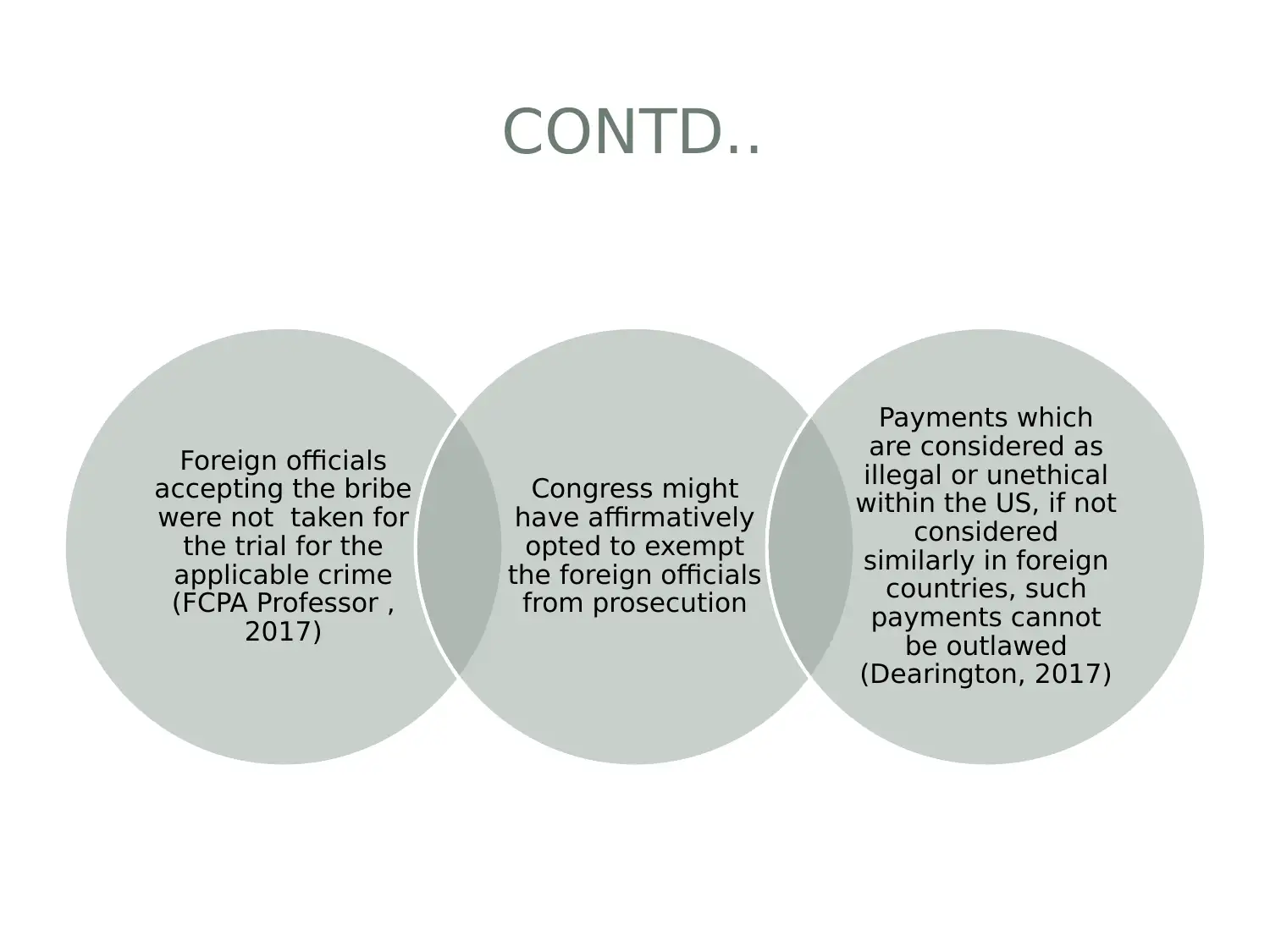
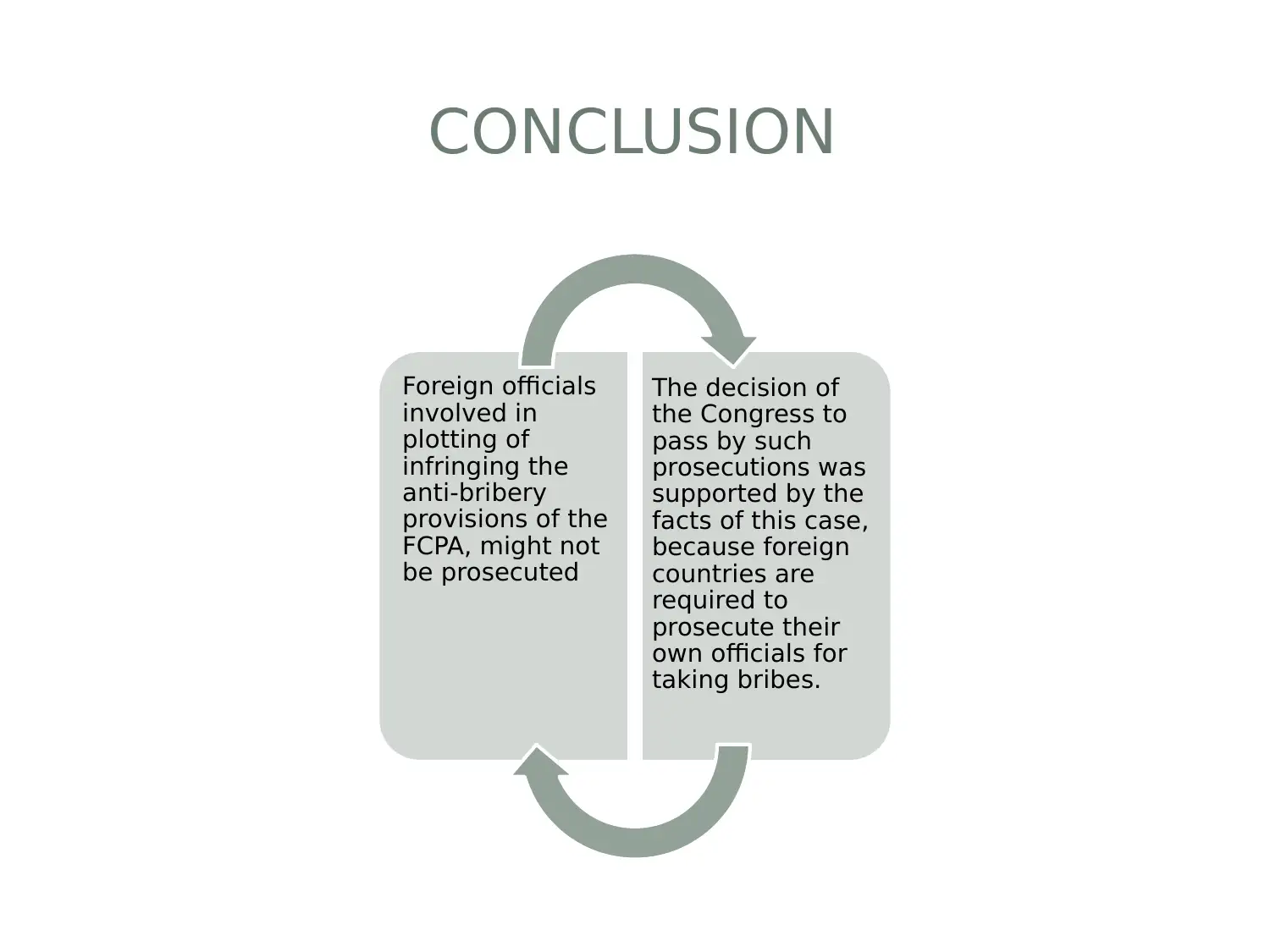
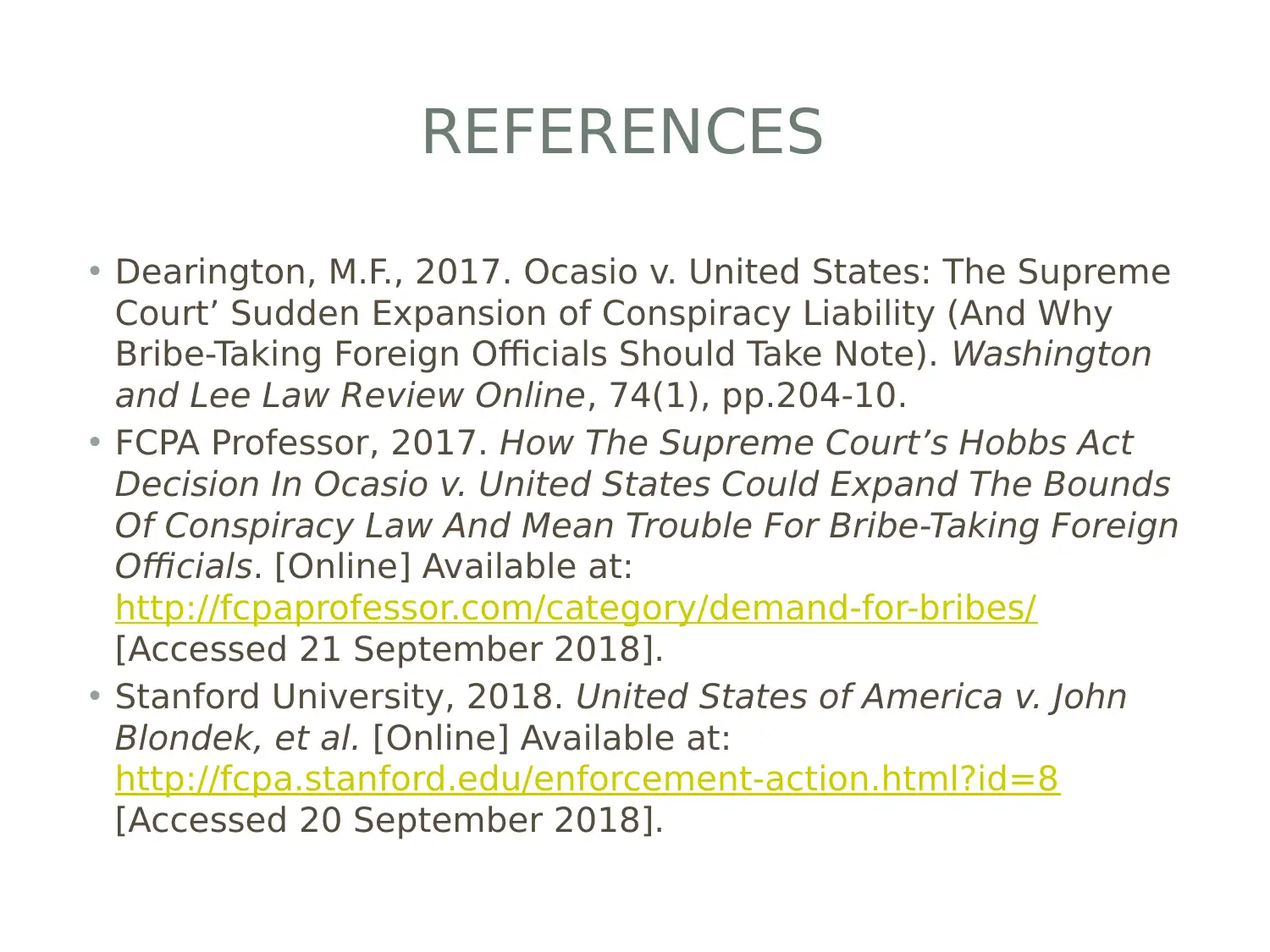



![[object Object]](/_next/static/media/star-bottom.7253800d.svg)